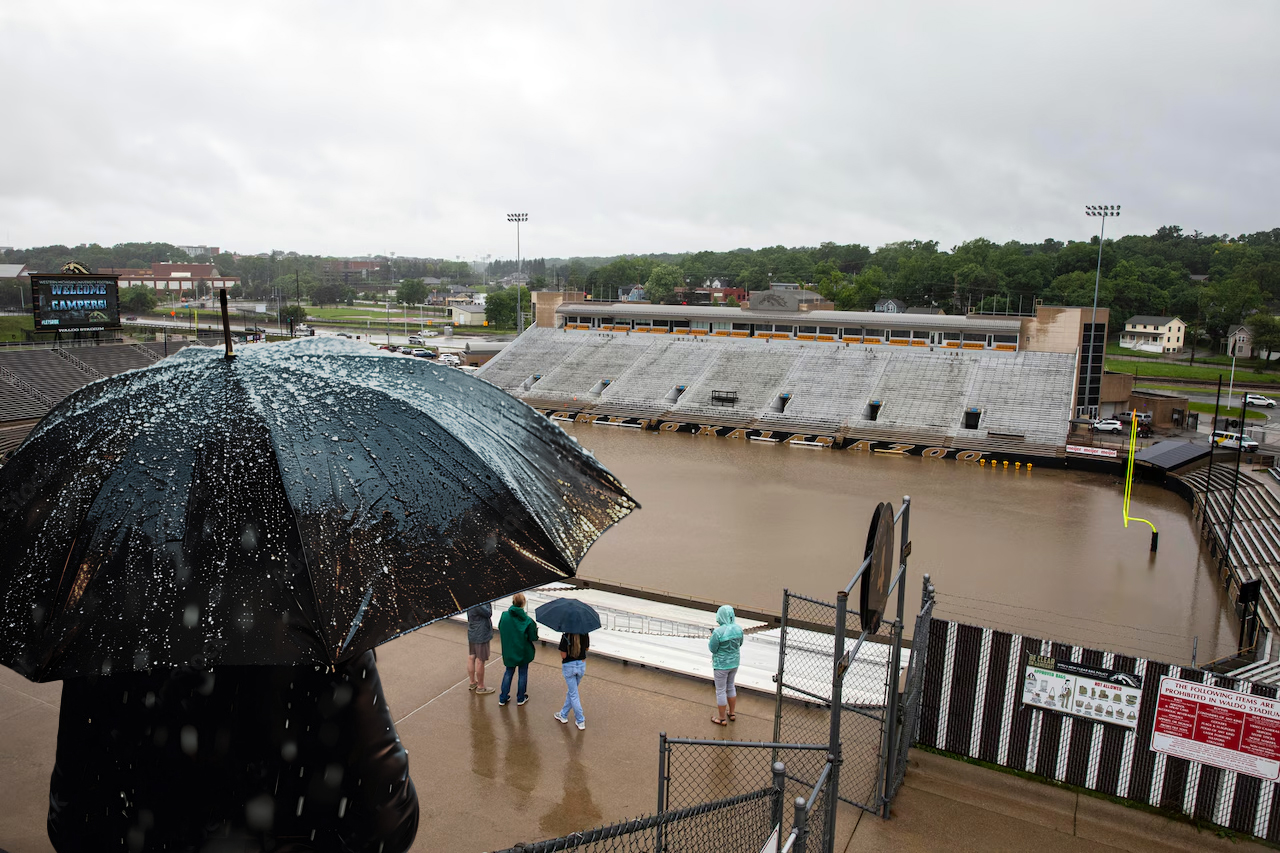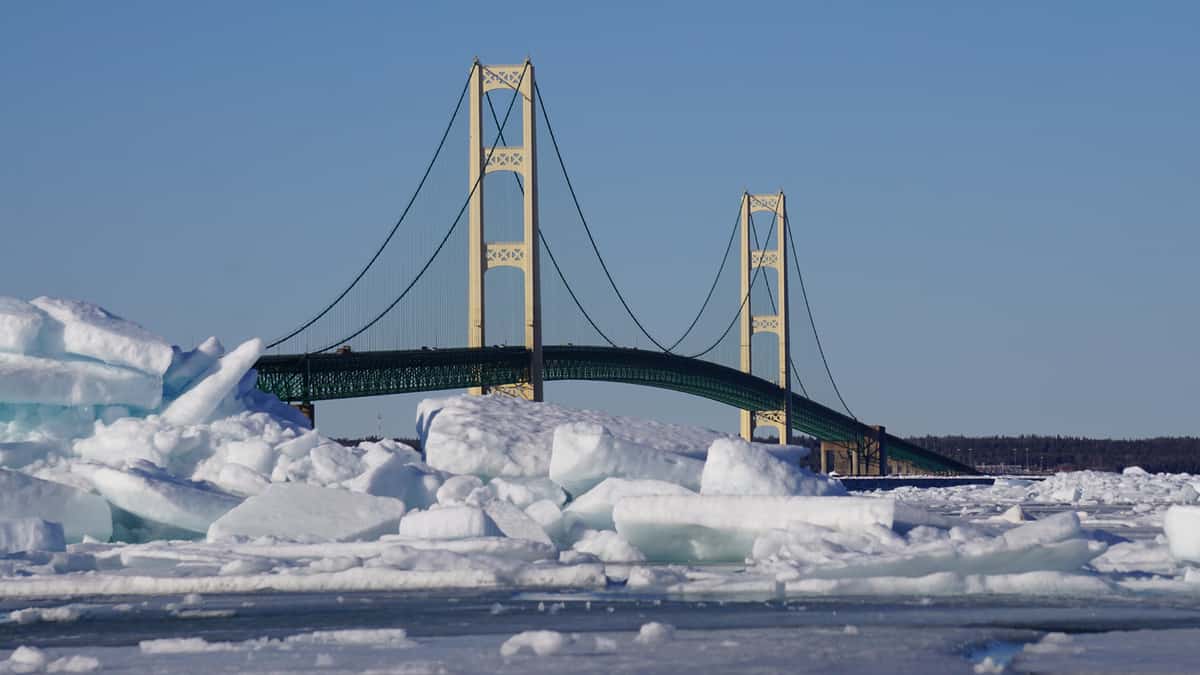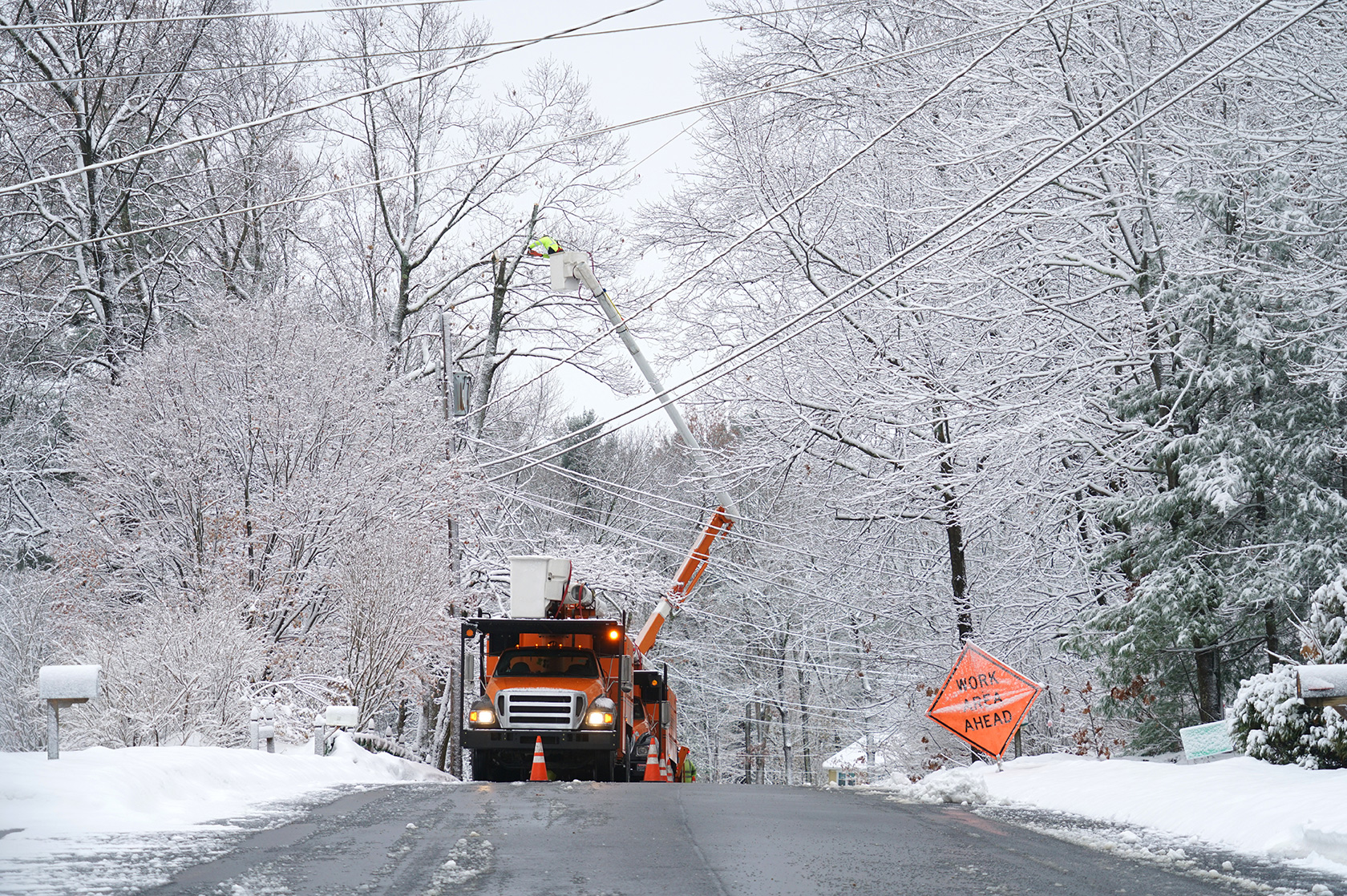Three Key Facts:
-
- Kalamazoo will use a $38 million grant from the U.S. Department of Transportation to stop frequent flooding along Stadium Drive.
- The project will include uncovering part of Arcadia Creek, much of which is underground, and upgrading the aging stormwater system to handle more water and reduce the likelihood of flooding.
- When the project is completed, 60 acres of land and 70 homes and buildings will no longer be in a floodplain.
-
Imagine a college football stadium so flooded that it looks like a giant bowl of soup. That’s exactly what Western Michigan University’s Waldo Stadium on Stadium Drive in Kalamazoo looked like in both 2017 and 2019 following heavy rains. It was so bad that the stadium was dubbed “Lake Waldo”.
Now, thanks to a $38 million grant from the U.S. Department of Transportation, that should not happen again. The funding will be used to upgrade the area’s aging stormwater system and to uncover – or “daylight” – some of Arcadia Creek, a creek that runs parallel to Stadium Drive. Some of the canals the creek runs through date back to the late 1800s and much of it is underground. Uncovering parts of the creek will allow for natural water level changes that would help reduce flooding.
The project is projected to be completed in 2028. When it’s finished, 60 acres of land and 70 homes and buildings will no longer be in a floodplain, according to the city.
Federal Highway Administration (FHA) Administrator Shailen Bhatt was in Kalamazoo this spring to announce the project. It is one of nearly $830 million granted nationwide to make transportation infrastructure more resilient to climate change.
“One of the things that has struck me here in Kalamazoo is the number of people … that I talked to who have this vivid memory of the 2018 floods,” FHA’s Bhatt said. Although Lake Waldo didn’t make an appearance that year, there was historical flooding in the region. It shut down streets and highways, flooded homes, and damaged vehicles, costing the city an estimated $2.5 million.
“This investment from the Biden-Harris Administration will ensure our infrastructure is built to withstand more frequent and unpredictable extreme weather, which is vitally important for people and businesses that rely on roads and bridges being open to keep our economy moving,” Bhatt said in a statement announcing the grants.
During the April announcement event, Michigan Governor Gretchen Whitmer talked about how people on the margins, particularly in urban areas, are disproportionately impacted by the flooding. “I think that when we make these infrastructure investments and make it more resilient, it disproportionately helps communities like this one and across our state,” she told News Channel 3.
The grant was awarded under a new program aimed at helping make surface transportation more resilient to natural hazards, including sea level rise, flooding, extreme weather events, and other natural disasters. Kalamazoo’s grant will help the city pay for a multi-year project to redesign and increase the stormwater capacity of Arcadia Creek which will improve environmental and water quality while protecting surrounding communities from flooding.





